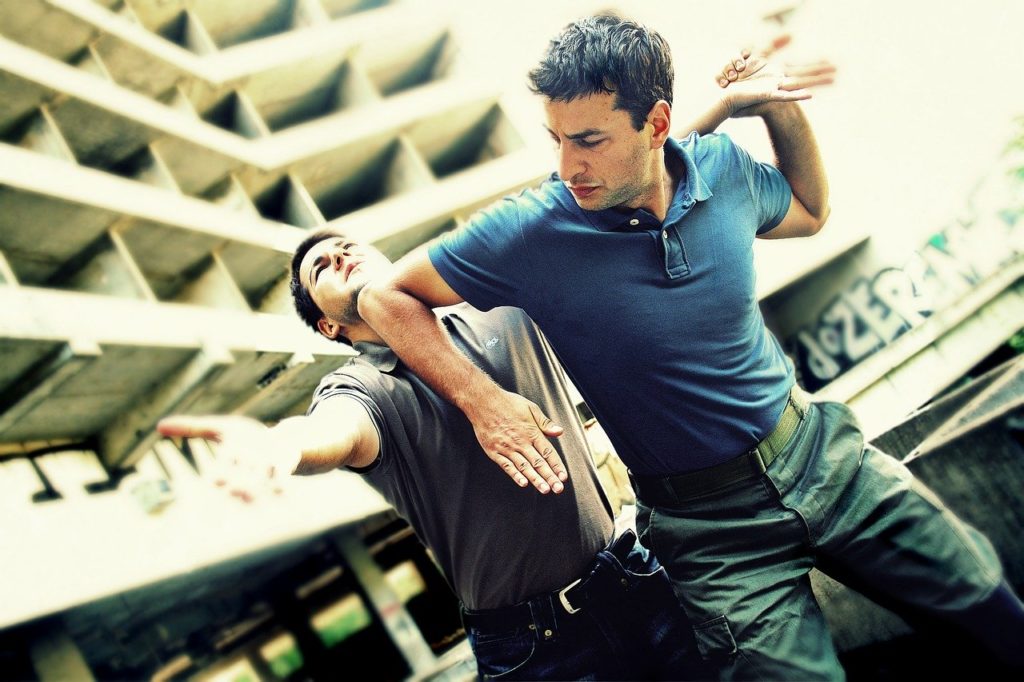If you thought that self-defense cases were straightforward, well, you thought wrong. This isn’t always the case, especially in states that have a stand your ground law.
If you’ve previously come across cases that involve it, then you’re likely aware of the controversy this law generates. It essentially means that an individual can get away with causing harm, injury, or even death to another person if they perceive their actions as “threatening.”
But that’s just the tip of the iceberg. So, what is a stand your ground law and what legal rights and liabilities should you be aware of, particularly if you live in a state that has it in force? Here’s what you need to know.
What Is a Stand Your Ground Law?
Stand your ground allows people to respond to physical force or threats in any way they deem fit, without the risk of facing criminal prosecution for their actions.

So, if you live in any of the stand your ground states and someone comes at you in a way that you perceive to be a threat to your safety and wellbeing, you can use a firearm to defend yourself without the risk of a manslaughter charge.
If the same incident happens in a non-stand-your-ground state, you will have to defend against a manslaughter charge. Their argument – you should only result in using lethal force as a last resort. So, you would have to prove that it was the only life-saving option you had at the time.
You would need to show the court that you either retreated from the situation or, at the very least, tried to. This has everything to do with the concept of duty to retreat.
It means that if you ever find yourself under an imminent threat, you first have to escape from it before responding to it with lethal force in self-defense. More than half of the states in the country adhere to this standard.
So, if you think about it, stand your ground laws is a revocation of the duty to retreat. Meaning that you can defend yourself using any means you deem appropriate – even if it means using deadly force – without first attempting to retreat from the aggressor.
What Is Deadly Force?
This is an amount of force that, when applied to an individual, is likely to cause grievous bodily harm, injury, or death. It is also referred to as lethal force. The next question you might ask is – when is deadly force justified?
Deadly force justification is applicable if you reasonably believe that the use of or threat to use such an amount of force is necessary to offset imminent death or grievous bodily harm/injury to yourself or someone else. In such instances, the use of lethal force is justified.
Here’s a scenario to paint a picture. Assume you live in a stand your ground state.
If you happen to be standing on a public sidewalk, minding your own business, and you spot someone a couple of yards away walking towards you while wielding a knife, in what would appear to be a threatening way, you don’t have a duty to retreat.
The law allows you to stand your ground and use deadly force to stop the person from killing or causing you grievous bodily harm/injury. You have the right to self-defense.
Picture this scenario as well. You’re standing on the sidewalk, and someone proceeds to shove you as they walk past. You lose your cool and engage them in a fistfight. In the process, they pull out a knife, and you pull out your gun to shoot them. In this instance, the use of deadly force is not justified since a jury might find that you engaged in criminal activity beforehand, i.e., the fistfight.
Castle Doctrine vs. Stand Your Ground
Your home is your castle. According to the Castle doctrine, there’s no duty to retreat if you confront an intruder in your home. Castle doctrine states allow citizens to use an appropriate amount of force, even if it is lethal, to defend against someone who breaks into their home. The definition of an “intruder” is someone who:
- Unlawfully and forcibly enters, or tries to enter your home; and
- Is also not a member of your family or household
Some Castle doctrine states like California usually have a “legal presumption” caveat attached to the law. And, it’s that – the resident should have a reasonable fear of imminent death or suffering grievous bodily harm to themselves or other members of the household.
Keep in mind that the Castle doctrine centers on the castle. The intruder would need to be inside your home for you to apply the right to self-defense, which is one of the 2nd Amendment rights as provided for in the US Constitution.
Castle doctrine and stand your ground laws are in many ways quite similar. The only difference is where each of them applies. Castle doctrine is limited to your property, which may include your home or place of business. In some states, the doctrine may also apply to an individual’s car.
Stand Your Ground Controversy
Critics of this law argue that it encourages violence. That it leads to a shoot-first-and-ask-questions-later mentality, even in situations that could have easily been diffused without the use of deadly force. This inevitably results in more deaths and injuries that could have otherwise been avoided had the law not been in force.
On the opposite side of the fence, sit the proponents of the law. They laud it since it allows people to protect themselves without having to later prove in court that their use of lethal force was justified as a last resort.
An example of this controversy is in the recent case of Mark and Patricia McCloskey, who pointed guns at protestors on June 28, 2020 in St. Louis, Missouri, after they allegedly broke through the McCloskeys’ gated residence.
Missouri is both a Castle Doctrine state and a stand-your-ground state, which means that, according to the current laws of the state, if the protestors did break through the McCloskeys’ locked entry gate, then they were justified in their response.
Nevertheless, they will still face legal scrutiny in addition to angry public scrutiny and death threats, according to the McCloskeys.
Talk to a Lawyer and Get All the Information You Need
Stand your ground laws can be complicated. One mistake, and you’ll be dealing with some pretty devastating consequences.
If you’re currently under investigation for shooting someone in self-defense, or you just want to learn about the stand your ground laws in your state, the best thing to do would be to get in touch with a top criminal defense attorney to shed some light.
If you need help, you can chat online with a Laws101.com legal assistant to help you find the right criminal defense attorney in your area.
